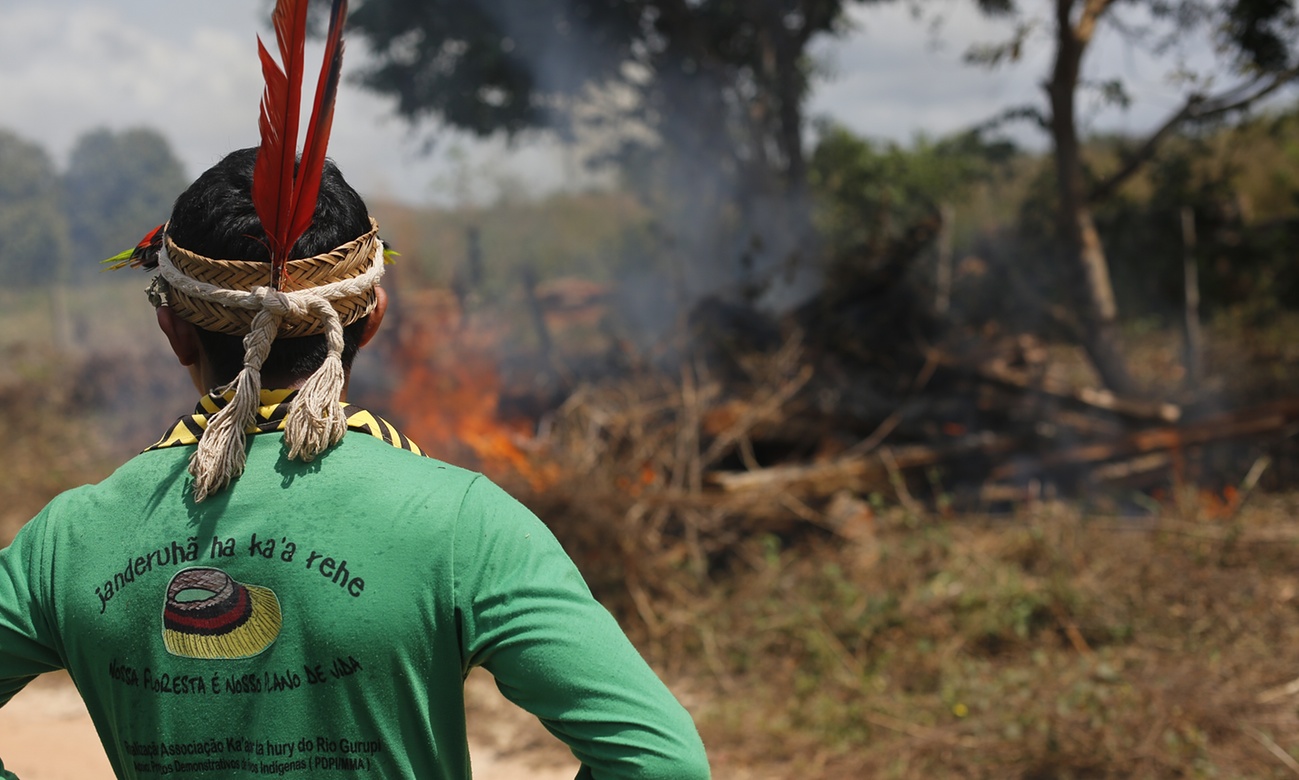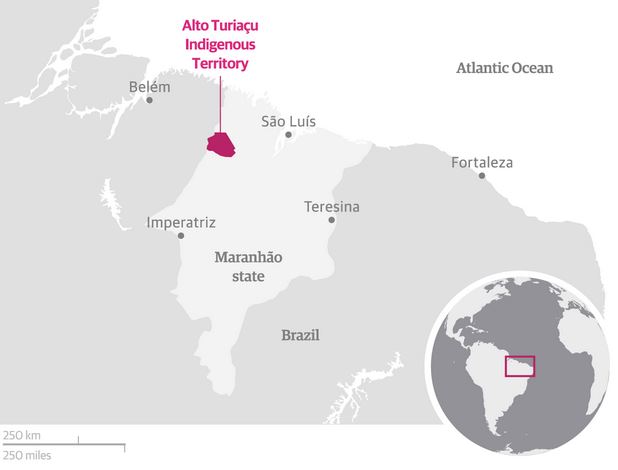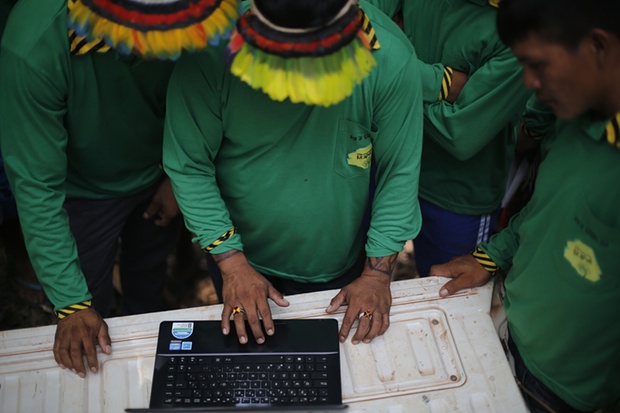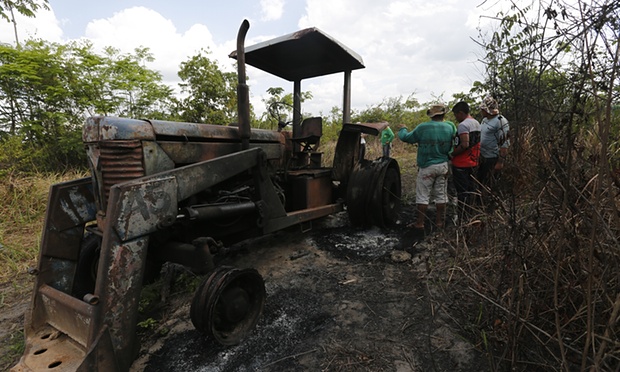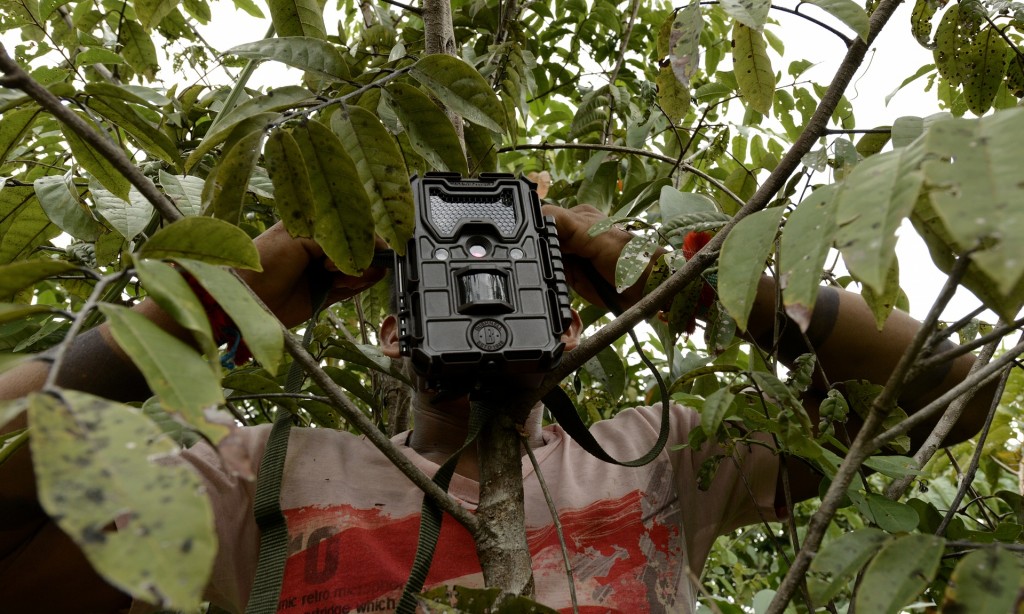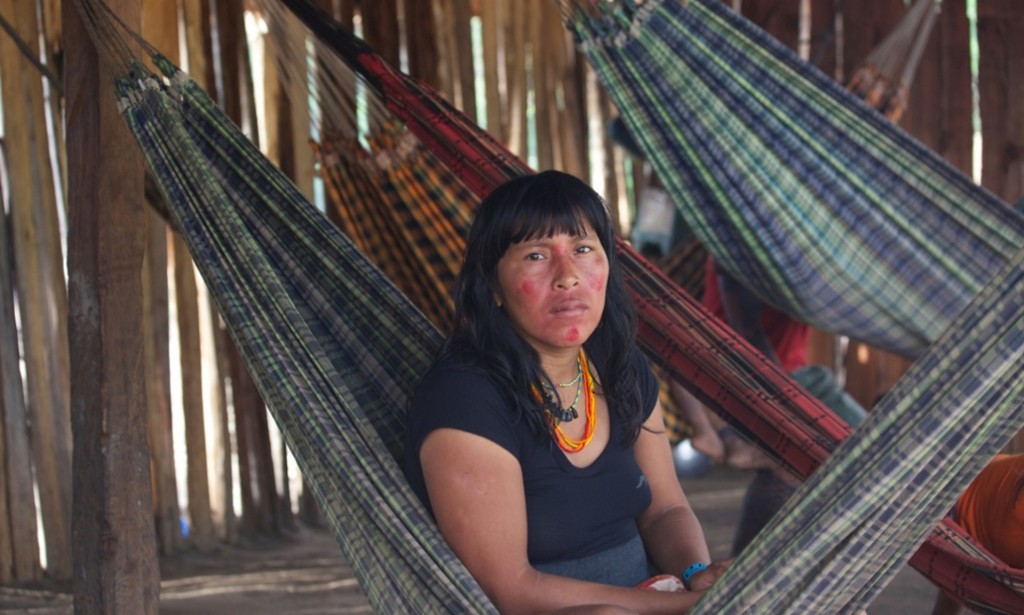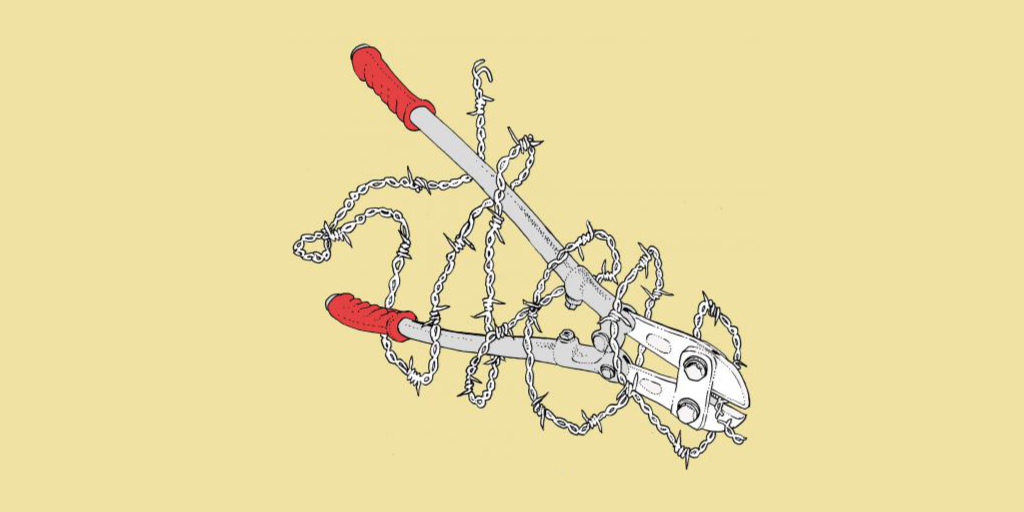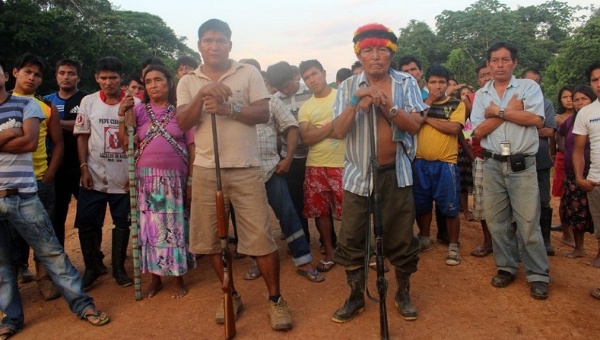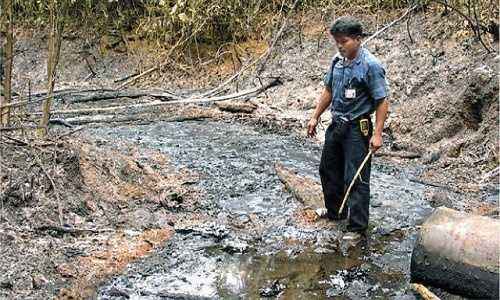22nd October 2015
As indigenous activists opposing hydropower dams on their territories gather this weekend in the rainforests of Sarawak, Malaysia, they have good news to celebrate: a giant dam on the Baram river has been put on hold. But the forests are still being logged, local people have been stripped of land rights, and a programme of 12 giant dams is still official policy.
Indigenous anti-dam campaigners from Brazil, India, Honduras, and across Southeast Asia are gathering on the island of Borneo to coordinate campaigns on the impact of large hydroelectric dams.
The World Indigenous Summit on Environment and Rivers is now under way in the town of Miri on Baram River in the Malaysian state of Sarawak – where rainforest dams have already drowned thousands of square kilometres of forest.
Local indigenous people belonging to Penan, Kenyah, Kayan and other groups have led a two-year blockade against the proposed Baram hydropower dam sited on the upper reaches of the Baram River, staging encampments at the dam site itself and at a site along its access road.
“We are maintaining the blockade and we are going to celebrate the anniversary on the 23-24 October”, said Peter Kallang, conference organizer and coordinator of SAVE Rivers Sarawak, a network of groups opposing dams.
Baram dam on hold – but the logging rages on
Activists have reason to celebrate. In a television address in July Sarawak’s Chief Minister Tan Sri Adenan Satem declared a moratorium on the Baram Dam project. The 400-square-kilometer (154-square-mile) reservoir of the 1,200-megawatt Baram Dam would displace up to 20,000 people and submerge their lands.
So good news, certainly. But despite the moratorium, clearance of the vast Baram Dam site is proceeding quickly. The government has already extinguished local land rights and issued logging permits to large Malaysian logging companies, and logging has begun, as Kallang explains:
“The loggers are going all out to take this opportunity to cut everything in the way. This license for logging is a legal license given by the government under what they call the salvage logging … under salvage logging they cut anything and everything, even the small trees about six inches in diameter.”
Meanwhile it appears that the moratorium decision may have been forced by simple economics: an inability to raise the billions of dollars needed for its construction.
In the case of the 2,400-megawatt Bakun Dam, which became operational in 2011 private financing fell short and British-Australian mining giant Rio Tinto backed out of a proposed aluminium smelter. The state resorted to loaning most of the $2.3 billion construction cost from state pension funds.
The controversial dam, Asia’s second largest outside China, displaced 10,000 people and submerged 700 square kilometres (270 square miles) of rainforest and farmland. But now it is running at well under half of its capacity three years after it came online: it is actually generating just 900MW due to lack of domestic energy demand.
A plan to export Bakun’s energy to the Malaysian mainland via undersea transmission lines has been shelved. Activists are also keen to highlight the poor record of electricity generation by Sarawak’s Batang Ai dam.
But there’s plenty more dams planned for Sarawak’s rivers
The Baram Dam is only the fourth proposed development of twelve large dams slated to be constructed by 2030 as part of a broader hydropower-development plan called the Sarawak Corridor of Renewable Energy (SCORE). And there’s no sign that the project is to be abandoned.
Next in line for construction is the 1,295 megawatt, 204-meter (669-foot) high Baleh Dam, which so far has attracted less opposition because it is not scheduled to displace communities. Over the long term, 50 dams will be required to realize the Malaysian government’s target of 20 gigawatts of hydropower capacity in Sarawak.
“The essence of SCORE is to industrialise the state by leveraging on Sarawak’s competitive advantage in bulk hydropower”, Sarawak’s Public Utilities Minister Datuk Amar Haji Awang Tengah Ali Hasan said in a speech at the International Hydropower Association’s (IHA) conference in China last July.
Hasan argued that the plan would bring jobs and economic development to Sarawak, particularly it’s remote areas, according to the Borneo Post. Mongabay contacted the IHA for its views on SCORE and the Baram moratorium but it declined to comment.
SCORE, born in 2006 out of the Ninth Malaysia Plan, a government roadmap for development by 2020, represents a formidable scheme to replace indigenous lands and tropical rainforests with heavy industry like steel, glass, aluminium, and agri-business plantations.
However, the aim to industrialize might not be going according to plan. “It is all talking nonsense”, said Kallang, explaining that Sarawak Energy, the nationalized state energy supplier that manages all of Sarawak’s electricity, has repeatedly failed to disclose a list of companies that have signed on to purchase electricity from the 12 planned dams. Kallang suspects this is because no such list exists.
Meanwhile Sarawak’s 944-megawatt Murum Dam is complete but has yet to become operational. Kallang explained that controversy still surrounds the project, with displaced Penan hunter-gatherer indigenous communities claiming they have not been paid the compensation that the Sarawak government promised them. But another problem, surely, is that there is no demand for its power.
Still no final decision on Baram dam
Activists remain cautious about the Baram moratorium and have decided to maintain their blockade pending further confirmation. Kallang thinks the state elections next year might have influenced the decision to put the dam on hold. “When politicians talk we have to know whether they are really genuine or they are fishing for votes”, he said.
Sarawak Energy spokesperson Ahadiah Zamhari told Mongabay that a final decision on the dam’s construction has yet to be made. “The Chief Minister of Sarawak has imposed a moratorium to all parties on matters related to Baram hydropower project pending the government’s final decision on the project”, he stated in an email, while declining to be interviewed.
But Rebekah Shirley, a researcher with the Energy and Resources Group at University of California, Berkeley, is cautiously optimistic: “I see this recent moratorium on works in Baram as progressive. It is hopefully a signal of new leadership that is keen on listening to the concerns of stakeholders – albeit stakeholders that should already be a legitimate part of the decision making process.”
Shirley’s work with her Berkeley colleague Daniel Kammen showing the potential of small-scale energy options such as solar and micro-hydro to meet Sarawak’s energy needs without building dams has influenced the government.
Their research appears to provide a cost-effective alternative to big dams with the added advantage of reduced environmental and social conflicts. After meeting with Kammen, Kallang, and others in June, Sarawak Chief Minister Adenan said in a television interview last month that he would look into these alternatives.
But in recent years a number of revelations have exposed corruption at the highest levels of Sarawak’s Government. The business affairs of the former Chief Minister and current state Governor, Taib Mahmud, have particularly been in the spotlight. Kallang explained Taib’s links to dam construction, which have been well documented by the news media:
“If the dams, especially Baram and Baleh are cancelled, it will affect Taib’s company very much because the sole supplier of cement in the whole of Sarawak is a company called CMS [Cahya Mata Sarawak] which is owned 90% by the Taib family… Also Sarawak Cable is owned by his son, so they are going to supply all the cable required for the transmission lines.”
The struggle is global
Dam-building remains widespread worldwide. The International Hydropower Association in its 2015 report said: “We publish this report at a time of significant hydropower development, with 37.4 GW of new installed capacity in 2014 bringing the global total to 1,036 GW.”
As part of the convergence this week, the international delegation of activists is due to join villagers on the blockades in solidarity, and over a hundred people are expected to stay in the camp, extended for the occasion, at kilometer 15 of the dam’s access road. “They are going to visit the dam site and from there they will visit the villages which could be flooded if the dam is built. We will stay overnight on the blockade”, Kallang said.
Annina Aeberli, who is helping to organize the events as a campaigner with the Swiss NGO Bruno Manser Fonds, explained the idea behind the initiative: “We were really thinking about what we can do to strengthen [the villagers’] spirits to fight. So then we came back to this idea to bring international dam activists to the Baram area, so that they can show solidarity and motivate the people.”
Though the Baram Dam protests appear to have been effective, on October 26 Kallang is due in court, where he faces fines and even jail-time in a suit brought by Sarawak Energy against him and 22 others for allegedly chasing the company away from the Baram worksite.
Whatever the court outcome, Kallang is committed to the struggle long-term and recognizes the global dimensions of the issue as indigenous activists battling dams abroad make the long journey to Sarawak:
“We would like to invite them to share their experience in fighting against dams. And with this we hope to build better solidarity with them.”
Videos and sources here

 22nd October 2015
22nd October 2015

